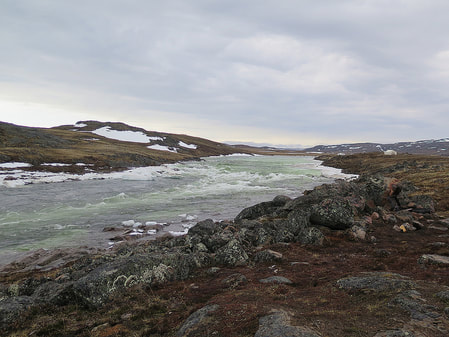Pond Inlet, Nunavut

Year(s) Funded: 2013-2014
Topic Area: Food Security Contact: Stephen Williamson Bathory, Qikiqtani Inuit Association ([email protected]) Partners: Qikiqtani Inuit Association, Nunavut Arctic College, Mittimatalik Hunters and Trappers Organization, Arktis Piusitippaa Inc., Higdon Wildlife Consulting, Fisheries and Oceans Canada, Baffinland Iron Mines Corp., Nunavut Wildlife Management Website: http://qia.ca Title: Monitoring Impacts of Climate Change and Industrial Development on Food Security (Availability and Quality of important Country Food Items) in Pond Inlet, Nunavut
Action:QIA initiated a multifaceted project to respond to some Mittimatalingmiut concerns. The main concerns of the Mittimatalingmiut were in relation to possible impacts on marine wildlife due to increased shipping activities related to industrial activities and cruise ship tourism. The three main components of the project were the development of narwhal and shipping observation programs, the development of a Passive Acoustic Monitoring (PAM) program, and the development of Food Safety/Food Quality program. Inuit youth and the Pond Inlet community have been heavily involved in the development, implementation, and completion of this multifaceted project, which has also included Inuit Qaujimajatuqangit (IQ) and Traditional Knowledge (TK) aspects being combined with scientific based research. This project also included developing a list of marine mammal experts that may offer their services, expertise, and advice to QIA and Pond Inlet community members in the future. The implementation of the Research Network of marine mammal experts, QIA and Mittimatalingmiut may become an on-going source for marine mammal advice and expertise. Results: Inuit youth deployed radio advertisements to Mittimatalingmiut, and led a series of meetings in Pond Inlet. As an example of engagement, the Inuit youth deployed the developed Food Safety/Food Quality surveys at Pond Inlet community meetings as a method of attaining meeting participant’s feedback. As a result, Mittimatalingmiut who attended meetings, read and/or completed surveys were offered opportunities to further voice their opinions at a later date in person, by phone, by email, or in writing. Outputs: A fourth (4th) component of the project involves developing a network of marine mammal experts, and is in the process of being developed. The developed network, once created, should act as a source of “on call” experts that QIA and/or its beneficiaries can call on to provide advice in relation to potential marine mammal issues or concerns. |
